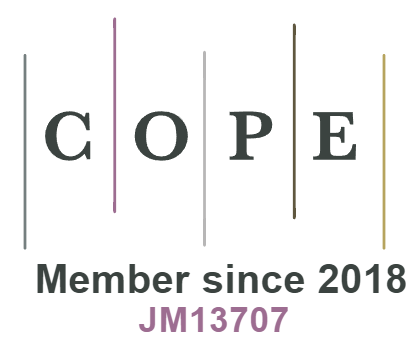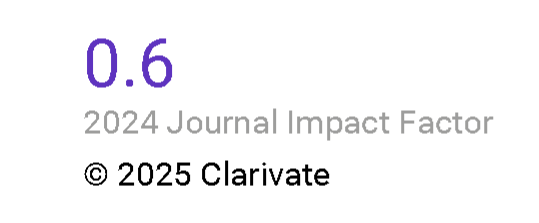Identity, Equality, Nameability and Completeness
DOI:
https://doi.org/10.18778/0138-0680.46.3.4.02Keywords:
first-order logic, type theory, identity, equality, indiscernibility, comprehension, completeness, translations, nameabilityAbstract
This article is an extended promenade strolling along the winding roads of identity, equality, nameability and completeness, looking for places where they converge. We have distinguished between identity and equality; the first is a binary relation between objects while the second is a symbolic relation between terms. Owing to the central role the notion of identity plays in logic, you can be interested either in how to define it using other logical concepts or in the opposite scheme. In the first case, one investigates what kind of logic is required. In the second case, one is interested in the definition of the other logical concepts (connectives and quantifiers) in terms of the identity relation, using also abstraction. The present paper investigates whether identity can be introduced by definition arriving to the conclusion that only in full higher-order logic a reliable definition of identity is possible. However, the definition needs the standard semantics and we know that with this semantics completeness is lost. We have also studied the relationship of equality with comprehension and extensionality and pointed out the relevant role played by these two axioms in Henkin’s completeness method. We finish our paper with a section devoted to general semantics, where the role played by the nameable hierarchy of types is the key in Henkin’s completeness method.
References
[1] H. Andreka, J. van Benthem, N. Bezhanishvili and I. Németi, Changing a Semantics: Opprtunism or Courage?, [in:] The Life and Work of Leon Henkin. Essays on His Contributions, Springer Basil, (2014), pp. 307–338.
Google Scholar
[2] P. B. Andrews, General models and Extensionality, The Journal of Symbolic Logic 37/2 (1972), pp. 395–397.
Google Scholar
[3] A. Church, A formulation of the simple theory of types, The Journal of Symbolic Logic 5/2 (1940), pp. 56–68.
Google Scholar
[4] G. Frege, Über Sinn und Bedeutung, Zeitschrift für Philosophie und philosophische Kritik, C, (1892), pp. 25–50. English Translation: On Sense and Meaning, [in:] B. McGuinness (ed.), Frege: collected works, Oxford: Blackwell, pp. 157–177.
Google Scholar
[5] L. Henkin, The completeness of the first order functional calculus, The Journal of Symbolic Logic 14 (1949), pp. 159–166.
Google Scholar
[6] L. Henkin, Completeness in the theory of types, The Journal of Symbolic Logic 15 (1950), pp. 81–91.
Google Scholar
[7] L. Henkin, Banishing the rule of substitution for functional variables, The Journal of Symbolic Logic 18/3 (1953), pp. 201–208.
Google Scholar
[8] L. Henkin, Some Notes on Nominalism, The Journal of Symbolic Logic 18 (1953), pp. 19–29.
Google Scholar
[9] L. Henkin, Identity as a logical primitive, Philosophia. Philosophical Quarterly of Israel 5/1-2 (1975), pp. 31–45.
Google Scholar
[10] L. Henkin, The discovery of my completeness proofs, The Bulletin of Symbolic Logic 2/2 (1996), pp. 127–158.
Google Scholar
[11] J. Ketland, Identity and Indiscernibility, The Review of Symbolic Logic 4/2 (2011), pp. 171–185.
Google Scholar
[12] M. Manzano, Extensions of First-order Logic, Cambridge University Press (1996).
Google Scholar
[13] M. Manzano, Model Theory, Oxford Logic Guides, Oxford University Press, (1999). (Translated by Ruy de Queiroz from Teoría de Modelos, Alianza Editorial, 1989).
Google Scholar
[14] M. Manzano, April the 19th, [in:] The Life and Work of Leon Henkin. Essays on His Contributions, Springer Basil, (2014), pp. 265–278.
Google Scholar
[15] M. Manzano, A. Kurucz and I. Sain, The little mermaid, [in:] Truth in Perspective, Concepción Martinez et al. (eds.). Ashgate. Aldershot (U.K.), (1998).
Google Scholar
[16] M. Manzano, I. Sain and E. Alonso (eds.), The Life and Work of Leon Henkin. Essays on His Contributions, Springer Basil, (2014).
Google Scholar
Downloads
Published
How to Cite
Issue
Section
License
Copyright (c) 2017 © Copyright by Authors, Łódź 2017; © Copyright for this edition by Uniwersytet Łódzki, Łódź 2017

This work is licensed under a Creative Commons Attribution-NonCommercial-NoDerivatives 4.0 International License.















